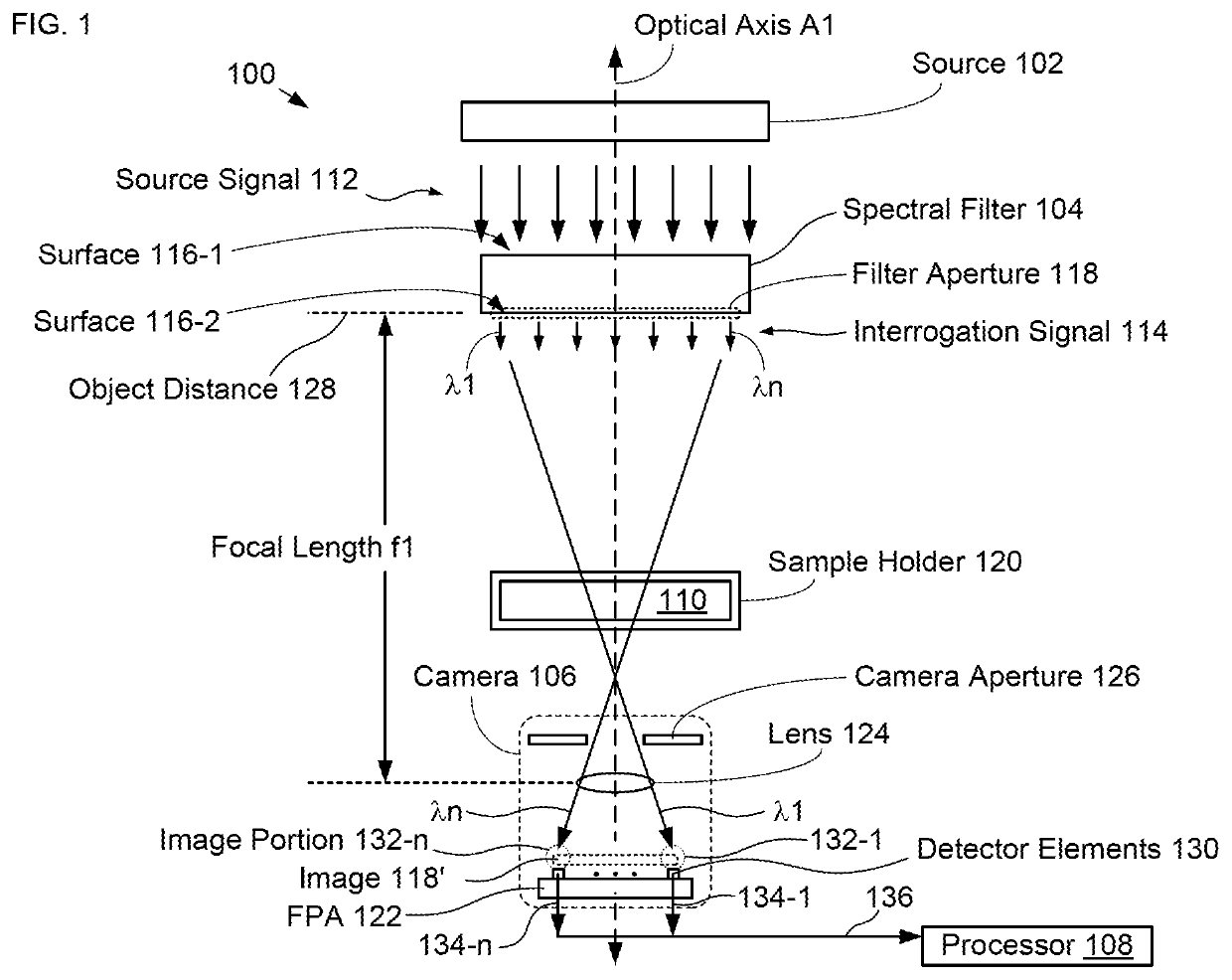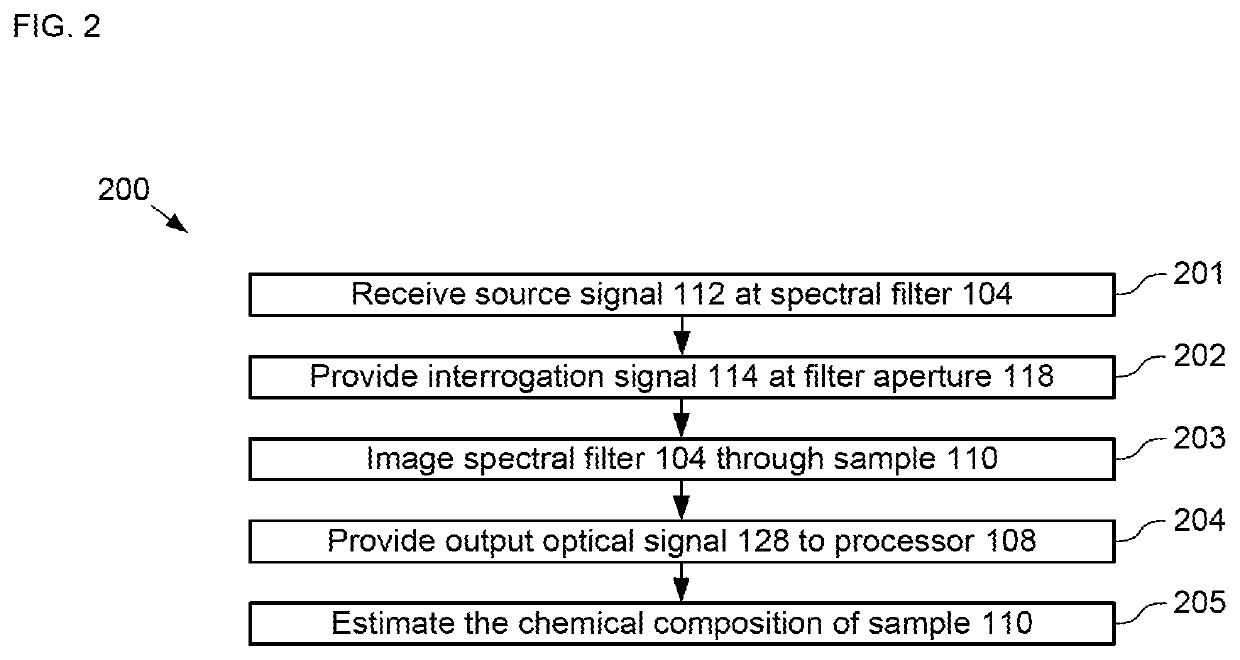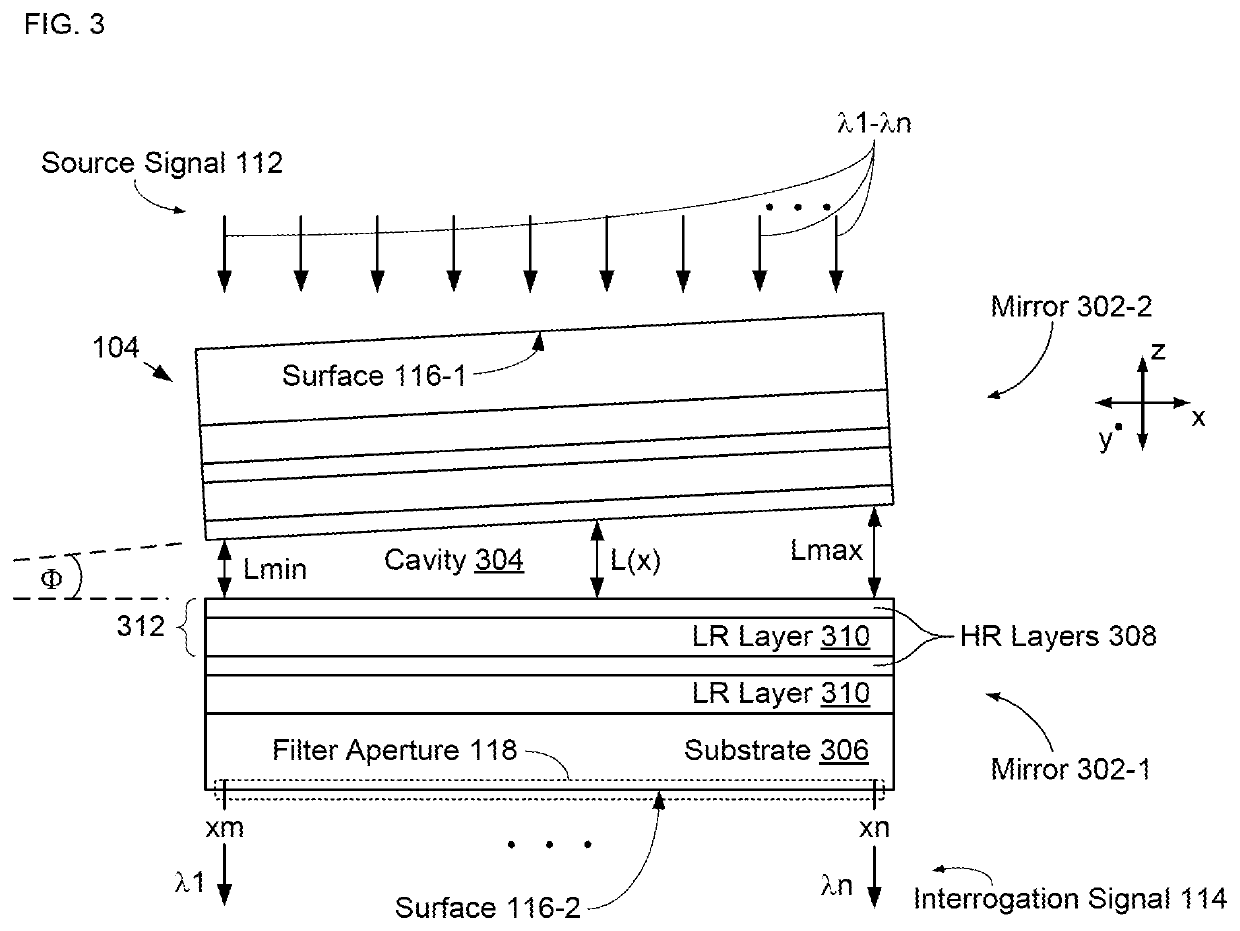Compact hyperspectral mid-infrared spectrometer
a spectrometer and mid-infrared technology, applied in the field of spectroscopy, can solve the problems of large system, high cost of manufacture and maintenance, large system, etc., and achieve the effect of reducing the dispersion angle of wavelength signals and reducing the divergence of wavelength signals
- Summary
- Abstract
- Description
- Claims
- Application Information
AI Technical Summary
Benefits of technology
Problems solved by technology
Method used
Image
Examples
Embodiment Construction
[0032]FIG. 1 depicts a schematic drawing of schematic drawing of an illustrative embodiment of an MIR spectrometer in accordance with the present disclosure. Spectrometer 100 includes source 102, spectral filter 104, camera 106, and processor 108, where source 102, spectral filter 104, and camera 106 are aligned along optical axis A1, which passes through sample 110.
[0033]FIG. 2 depicts operations of a method for performing MIR spectroscopy in accordance with the illustrative embodiment. Method 200 is described herein with continuing reference to FIG. 1, as well as reference to FIGS. 3-4A-B. Method 200 begins with operation 201, wherein spectral filter 104 receives source signal 112 from source 102.
[0034]Source 102 is a conventional broadband blackbody light source that provides source signal 112. In the depicted example, source signal 112 is has a continuous spectral range having spectral width, SR1, which extends from λmin to λmax with center wavelength λc1. In the depicted exampl...
PUM
| Property | Measurement | Unit |
|---|---|---|
| wavelength range | aaaaa | aaaaa |
| length | aaaaa | aaaaa |
| incident angle | aaaaa | aaaaa |
Abstract
Description
Claims
Application Information
 Login to View More
Login to View More - R&D
- Intellectual Property
- Life Sciences
- Materials
- Tech Scout
- Unparalleled Data Quality
- Higher Quality Content
- 60% Fewer Hallucinations
Browse by: Latest US Patents, China's latest patents, Technical Efficacy Thesaurus, Application Domain, Technology Topic, Popular Technical Reports.
© 2025 PatSnap. All rights reserved.Legal|Privacy policy|Modern Slavery Act Transparency Statement|Sitemap|About US| Contact US: help@patsnap.com



